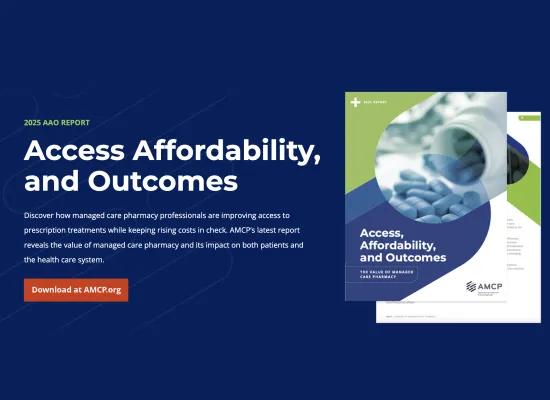
AMCP Partnership Forum on Digital Therapeutics Lays Groundwork for Coverage Decisions
Alexandria, Va., Sept. 26, 2019 — AMCP last week gathered a group of diverse health care stakeholders to discuss the challenges and opportunities of ensuring patient access to a category of emerging therapies known as “digital therapeutics,” which have the potential to treat a wide range of diseases and medical conditions.
AMCP’s Partnership Forum, “Digital Therapies: What Are They and Where Do They Fit in Pharmacy and Medical Benefits?” held Sept. 17-18 in Alexandria, Va., laid the groundwork for making coverage decisions on the therapies that many agree are on the frontier of medical science.
The event drew leading national players in the digital therapy space, with participants representing payers, manufacturers, employers, providers, patient advocacy groups, and government.
Questions addressed included what types of evidence are needed for coverage, along with how to evaluate safety, clinical effectiveness, comparative and cost effectiveness, information security, and interoperability. Participants also considered how pharmacy and the pharmacy benefit could play a primary role in managing and covering digital therapeutics.
Already, digital therapeutics are coming to market with indications to prevent, manage, and treat conditions ranging from diabetes and asthma, to depression and substance use disorder.
“The future is here,” said AMCP CEO Susan A. Cantrell, RPh, CAE. “These products represent an important new tool for providers to address the health and wellbeing of patients facing many disease states. Our goal is to ensure that patients will have access to the products that offer optimal clinical value at an affordable cost.”
Attendees developed a description of digital therapeutics, taking particular note of how they contrast from other digital health products on the market, such as consumer wellness apps.
A digital therapeutic, they agreed, is a “high-quality digital intervention, making a medical claim, that is driven by software programs to prevent, manage or treat a medical disorder or disease.” Digital therapeutics also “require approval and third-party validation of efficacy and safety claims,” by a regulatory or equivalent national body, such as the U.S. Food and Drug Administration, or a recognized accreditation or health services organization.
Coverage decisions, meanwhile, will include an examination of safety, efficacy, and usability, with formulary considerations based on the product’s medical claim or function. Products intended to replace a pharmaceutical intervention, for example, may require more evidence for coverage than those intended to monitor a condition.
The group also considered whether digital therapeutics are better suited for the pharmacy or medical benefit. Products accessed by patients through a pharmacy or third party might be better aligned with the pharmacy benefit.
In addition, participants examined how digital therapeutics are distinct from pharmaceutical products in several respects. Iterative changes can be expected as a result of regular updates to software and operating platforms, for example. Strategies for evaluating digital therapeutics in the real world must include ongoing product assessments as updates are implemented.
Participants broadly agreed that pharmacists have the knowledge and skills necessary to play a primary role in the management of digital therapeutics.
All findings and recommendations will be published in an upcoming issue of AMCP’s Journal of Managed Care & Specialty Pharmacy. This event was sponsored by Akili Interactive, Boehringer Ingelheim, Genentech, Livongo, MedRhythms, Merck & Co., metaMe Health, MindSciences, Novo Nordisk, Otsuka Pharmaceutical, Pear Therapeutics, Precision for Value, Sandoz, Sanofi, Takeda, Teva Pharmaceutical Industries, and Xcenda.
Featured News & Resources
See Full CalendarAward Applications Open
AMCP eLearning Day: Nexus Encore
AMCP 2026 Registration Opens
Upcoming Events
AMCP offers a wide variety of educational opportunities, from events and webinars to online training.







